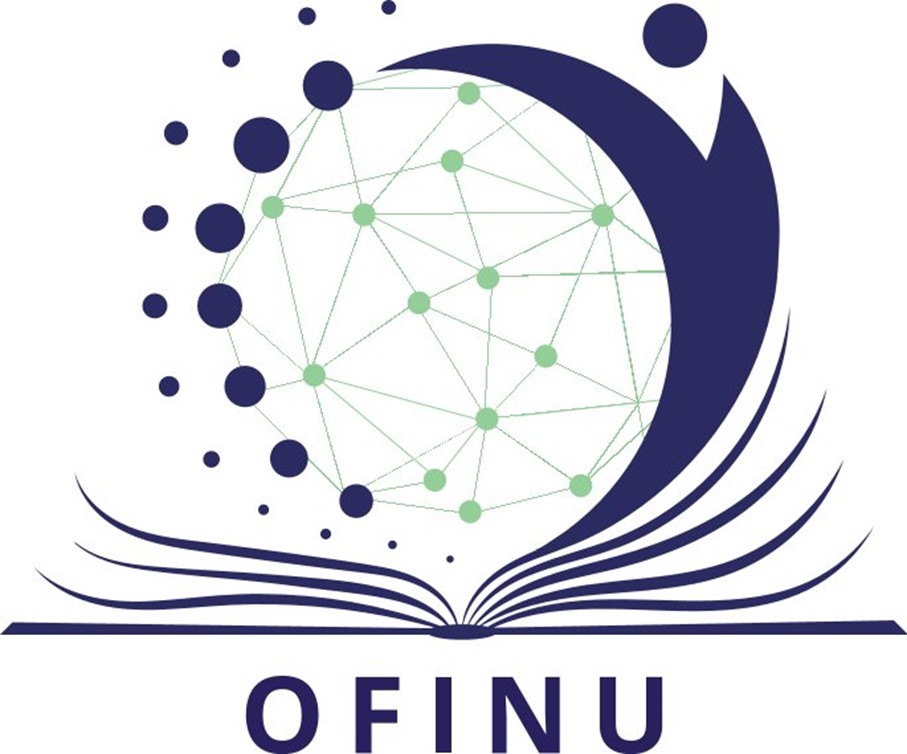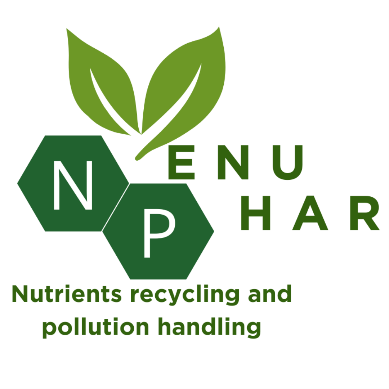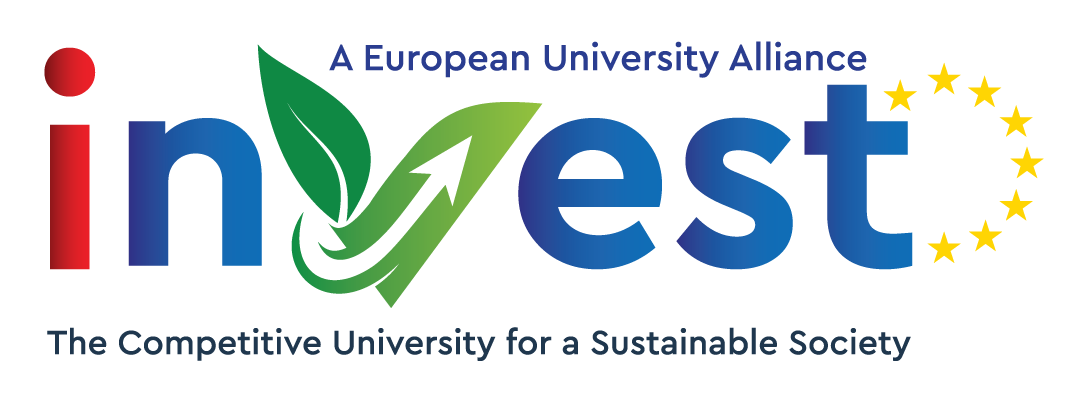
Erasmus+
Prof. Ing. Miroslava Kačániová, PhD.
The project
“Open Food Innovation University" - OFINU
No.101128855
Overall objective - to modernise food innovation and technology related higher education in Uzbekistan and Tajikistan, thereby increasing the quality and ensuring relevance of the higher education to the needs of the socio-economic growth of the countries concerned and especially of their regions.
Specific objectives:
- Improve the quality of food processing related higher education in Uzbekistan and Tajikistan, enhance its relevance for the needs and interests of sustainable national economies, labour market and societies.
- Create and implement innovative study form for increase of level of knowledge, skills and competencies of students and external learners, thus increasing their competitiveness in the labour market and employability potential of students.
- Promote inclusive education, create learning opportunities for the external learners of different age, social background and geographic locations.
- Ensure professional development for academic and administrative staff in order to impact the quality of higher education provided by the involved HEIs in the longer term.
- Stimulate cooperation of universities and business, exchange of good practice, develop and test the study modules with and within enterprises, thus enhancing relevance of higher education to the respective business sector.
- Enhance internationalisation of Central Asia higher education institutions and capacity to network effectively.
Partners:
7 full partners - universities:
- Lead partner: Latvia University of Life Sciences and Technologies
- Uzbekistan: Samarkand Agro-innovations and Research University, Andijan Institute of Agriculture and Agro-technologies
- Tajikistan: Technological University of Tajikistan, Kulob Institute of Technology and Innovation Management, Isfara Branch of the Technological University of Tajikistan
- Slovakia: Slovak University of Agriculture in Nitra
6 associated partners – 5 companies and one food processors’ organization:
3 in Uzbekistan:
- Fruit and vegetable processing sector - a group of companies "AGROMIR"
- Fruit and vegetable processing sector - the company "Navigul" MCHJ QK
- Cereal processing sector - “Samarqand don mahsulotlari” JC (Samarkand grain products)
3 in Tajikistan:
- Dairy processing sector - CJSC “Combinati Shiri Dushanbe”
- Meat processing sector - limited liability company "Orion Rustam"
- Association of Entrepreneurs of Khatlon
The project target groups:
- Involved Central Asia universities as institutions.
- Involved Central Asia universities staff: academic staff (teachers), management staff, staff of departments.
- Current and potential students.
- Food processing enterprises: owners, managers, employees.
- Public authorities - ministries, having relation to the issues targeted by the project: Ministry of Agriculture of the Republic of Uzbekistan, Ministry of Higher Education, Science and Innovation of the Republic of Uzbekistan, Ministry of Industry and New Technologies of Republic of Tajikistan, Ministry of Education and Science of the Republic of Tajikistan.
--

NENUPHAR: New Governance Models to Enhance Nutrient Pollution Handling and Nutrients Recycling
Project ID: 101082169
Duration: 2023 - 2027
The NENUPHAR project is a major EU-funded initiative tackling one of today's most pressing environmental challenges: nutrient pollution from nitrogen (N) and phosphorus (P). By transforming waste into valuable resources, NENUPHAR aims to protect our ecosystems while creating a more sustainable and resilient agricultural sector.
The Challenge: From Pollution to Resource Scarcity
The widespread use of fertilizers has led to significant pollution of our soil, air, and water. At the same time, the rising cost of fertilizers and the scarcity of key nutrients like phosphorus threaten food security. NENUPHAR addresses this dual challenge by recovering N and P from common waste streams, turning a problem into a solution.
Our Solution: A Holistic Approach to Nutrient Recovery
NENUPHAR goes beyond technological fixes by developing integrated solutions that involve all key stakeholders. The project focuses on three primary waste streams:
- Pig manure
- Sewage sludge
- Wastewater coming from dairy processing
To effectively recycle nutrients from these sources, the project is built on four key pillars of innovation:
- Emission Assessment: Creating a reliable methodology to estimate nitrogen and phosphorus emissions from fertilizer application.
- New Governance Models: Developing collaborative network models to engage public authorities, industry, and farmers in the nutrient recycling process.
- Economic Incentives: Designing innovative financial tools and policies to make nutrient recovery attractive for both public and private sectors.
- Enabling Technologies: Implementing and optimizing practical technologies for efficient nutrient recovery from waste.
Project Impact and Pilot Testing
The NENUPHAR approach will be tested and validated in real-world conditions through pilot activities in various river basins, with subsequent replication in island systems. This strategy has the potential to recover significant amounts of nitrogen and phosphorus, contributing to cleaner environments and providing competitively priced, recycled fertilizers for the food value chain.
Slovak University of Agriculture in Nitra in the NENUPHAR Consortium
Our faculty is a proud partner in this ambitious international effort, working alongside 20 other institutions from 11 countries.
- Project Manager for SUA: prof. Ing. Ľuboš Jurík, PhD.
- Slovak Partners: Slovak University of Agriculture in Nitra and the University Farm of the Slovak University of Agriculture in Nitra.
This participation underscores our faculty's commitment to pioneering research in sustainable agriculture and environmental protection.
Stay Connected
To follow our progress and learn more about our findings, please visit the project website and follow us on our channels.
- Project website https://project-nenuphar.eu/
- Sign up for our Newsletter
- Follow us on LinkedIn, YouTube
--

- doc. Ing. Beáta Novotná, PhD.
--

Erasmus+
Prof. Ing. Miroslava Kačániová, PhD.
Horeca project
Strategies to Improve the Qualification of Hotel Restaurant Catering Staff on Food Safety and Hygiene Practices.
ID: 2021-1-SK01-KA220-VET-000034652
Objectives of the project:
♦ Support workers in the HORECA sector and reduce unfair competition in food marketing.
♦ Provide education and training opportunities for HORECA workers with low qualifications.
♦ Increase the job skills of HORECA workers who have fewer opportunities by improving their key skills.
Tools and strategies:
The tools and strategies that will be developed will enable the acquisition of new professional, social and intercultural skills thanks to the comparison with other European trainers, interpersonal skills in new work contexts; intercultural and European sensitization; language skills related to the language spoken in the host country and/or English, ICT skills derived from the use of digital and multimedia tools, etc.
The main goal of the project is to raise HORECA workers’’ digital awareness related to food safety and hygiene practices.
--

Erasmus+
Prof. Ing. Miroslava Kačániová, PhD.
Partnership for innovation on the exchange of best practices and the design of joint collaborative initiatives at European level related to the awareness of the effects of contamination on human health
ID: 2023-1-RO01-KA220-HED-000164767
DURATION: 2023-2026
The main aim of the project is the development of the international and interdisciplinary cooperation partnership, along with the exchange of good practices and the design of common collaboration initiatives at the European level, in the field of awareness of the gravity of pollution and its direct effects on health, related to improvement of educational activities; strengthening translational and interdisciplinary links; stimulating the internationalisation.
--

Erasmus+
Prof. Ing. Miroslava Kačániová, PhD.
Smooth Transition from Academia to a Carrier in AgroBiotechnology: Designing Carrier Plan
Agrobiotech project
ID: 2023-1-SK01-KA220-HED-000160349
DURATION: 2023-2026
AGROBIOTECH+ project aims to help students make a smooth transition from academia to the agro-biotechnology industry by providing them with the tools and resources they need to succeed. To achieve this, the project will incorporate innovative learning and teaching practices, Project-Based Learning (PBL) approach will be used to develop a designing career plan training program, success storıes vıdeo tutorıals, handbook for carrıer plannıng.
The project's main goal is to help students make a smooth transition from academia to the agrobiotechnology industry by providing them with the tools and resources they need to succeed. This focus on career planning is innovative because it addresses the gap between university learning and workplace practices and aims to increase the employability of higher education graduates.
--

Deutsche Gesellschaft für Internationale Zusammenarbeit (GIZ) GmbH
Prof. Ing. Miroslava Kačániová, PhD.
Vocational training for economic growth sectors in Central Asia: Transfer of achievement of European educational technologies in the field of food production technology in Tajikistan (TAEETT)
Project processing number: 20.2212.7-006.00
DURATION: 2023-2025
The objective of the project “Transfer of achievement of European educational technologies in the field of food production technology in Tajikistan (TAEETT)” (hereinafter referred to as ‘Project’), which is financed by this Grant, is: to support modernization of higher education in the area of technology milk and dairy products, enhancing the quality and relevance of higher education in the area of technology milk and dairy products in Tajikistan. GIZ has no entitlement to performance by the Recipient as part of this Grant.
The overall objective of this project is to support modernization of higher education in the area of technology milk and dairy products, enhancing the quality and relevance of higher education in the area of technology milk and dairy products in Tajikistan.
Specific objectives:
• To prepare up-to-date high quality training materials on dairy technologies
• Modernize teaching methods used in the training on dairy technologies
• Provide a scientific update in dairy technologies, in particular in the field of valorization of by-products
• To assess the quality pf the TJ degrees in dairy technology according to international standards
• To enhance networking among higher education institutions across Tajikistan and Slovak University of Agricultural in the field of dairy technologies.
• Organization of training courses for students, teachers and stakeholders green technology and prosessing of the "Milk waste products"
• Organization of training courses for students, teachers and stakeholders in the field of "Food Safety, Hygiene and Management"

